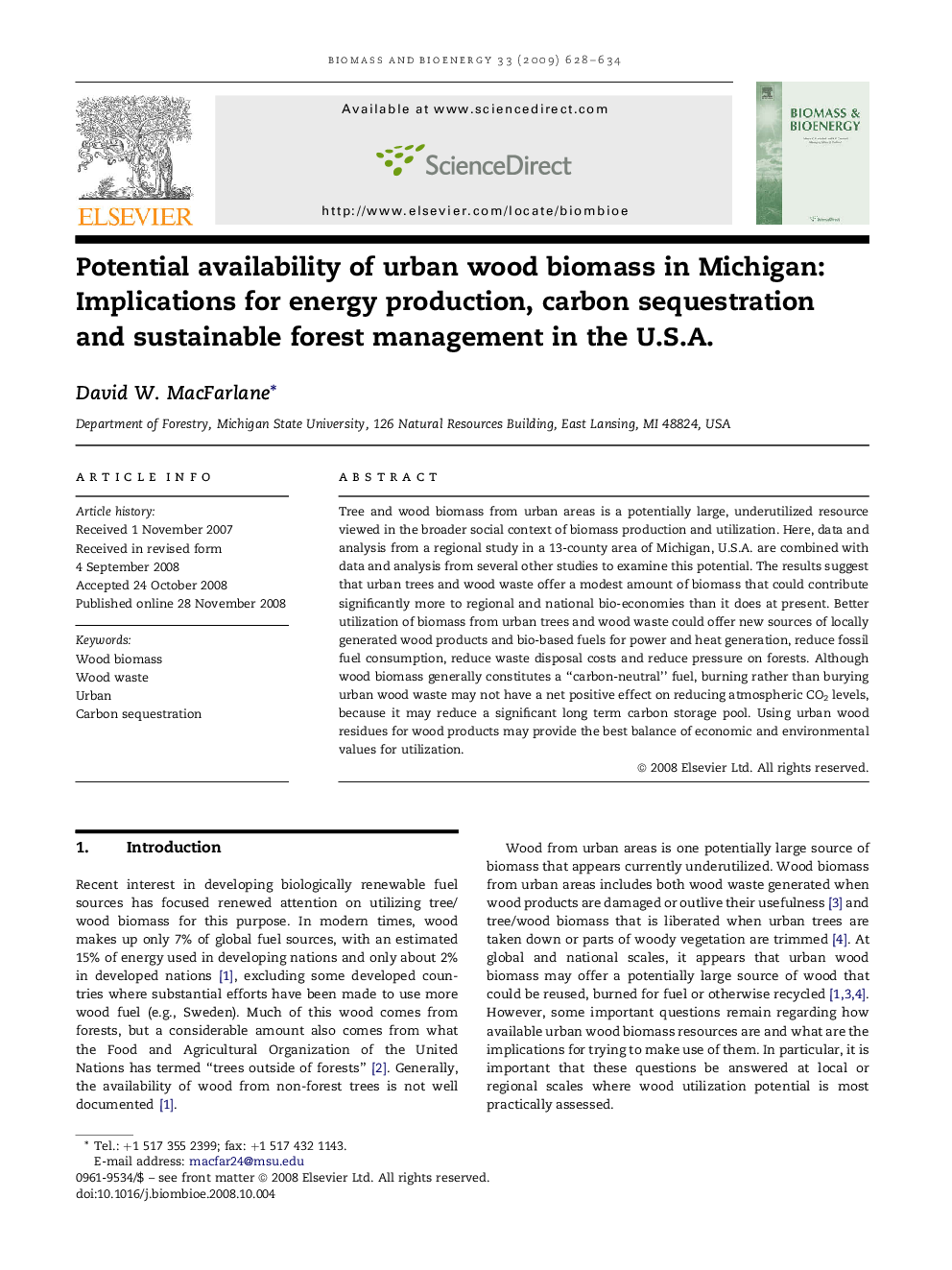| Article ID | Journal | Published Year | Pages | File Type |
|---|---|---|---|---|
| 678195 | Biomass and Bioenergy | 2009 | 7 Pages |
Tree and wood biomass from urban areas is a potentially large, underutilized resource viewed in the broader social context of biomass production and utilization. Here, data and analysis from a regional study in a 13-county area of Michigan, U.S.A. are combined with data and analysis from several other studies to examine this potential. The results suggest that urban trees and wood waste offer a modest amount of biomass that could contribute significantly more to regional and national bio-economies than it does at present. Better utilization of biomass from urban trees and wood waste could offer new sources of locally generated wood products and bio-based fuels for power and heat generation, reduce fossil fuel consumption, reduce waste disposal costs and reduce pressure on forests. Although wood biomass generally constitutes a “carbon-neutral” fuel, burning rather than burying urban wood waste may not have a net positive effect on reducing atmospheric CO2 levels, because it may reduce a significant long term carbon storage pool. Using urban wood residues for wood products may provide the best balance of economic and environmental values for utilization.
